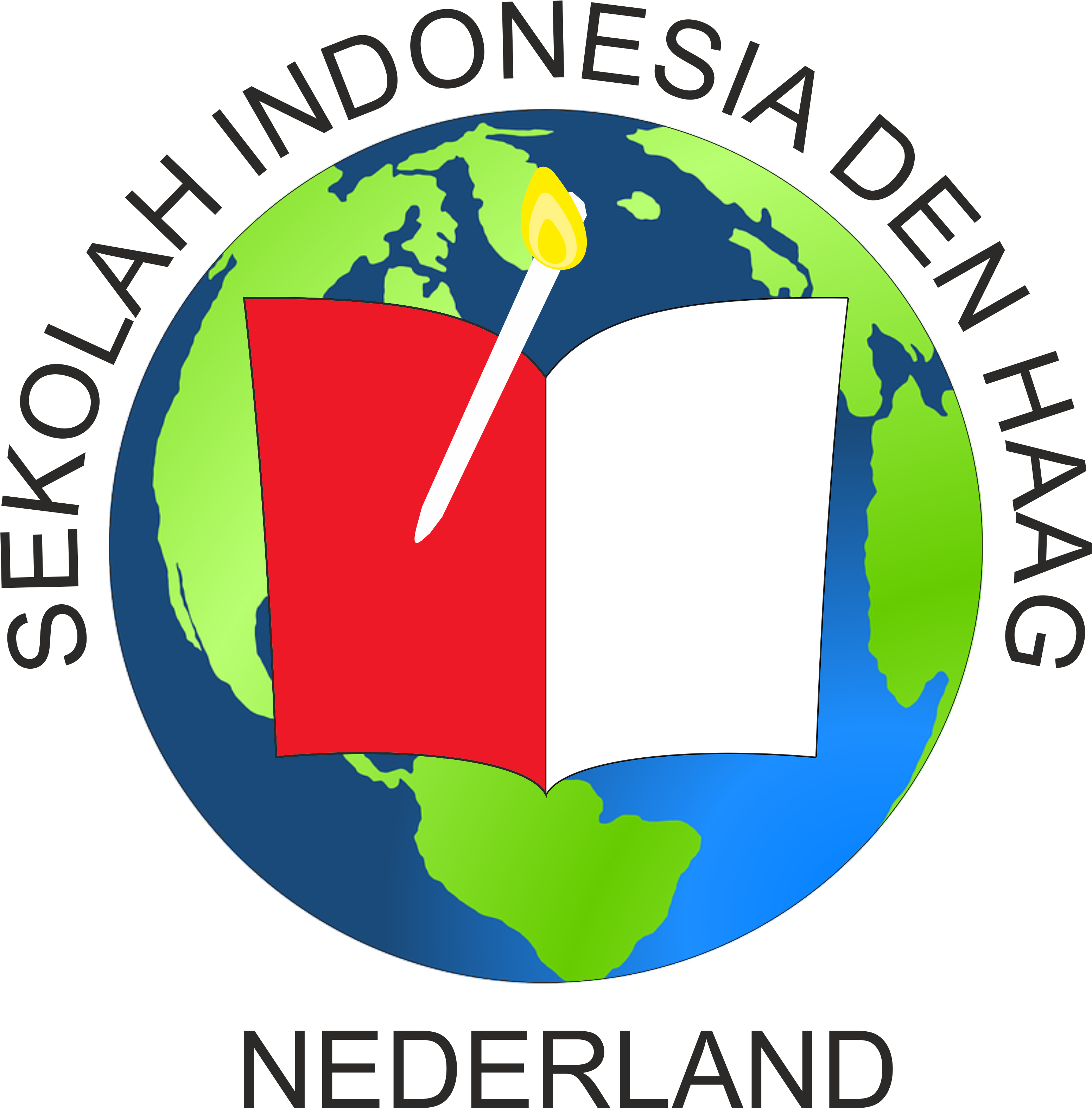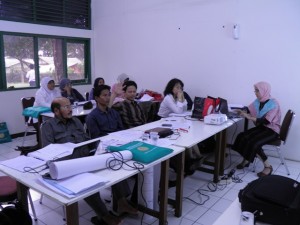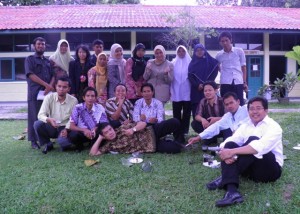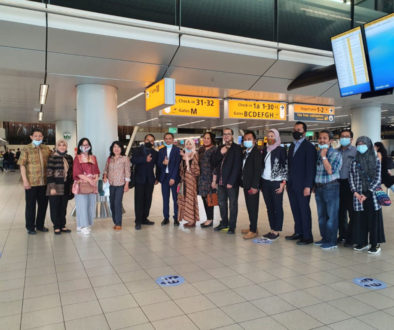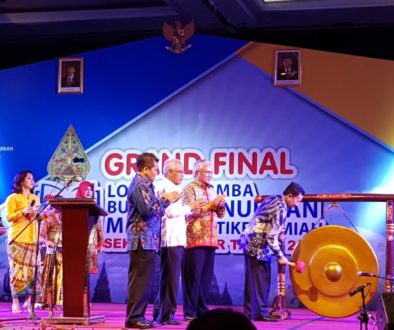“TRILEMMAS” IN THE MAKING OF PROFESSIONAL AND CERTIFIED TEACHERS
Gunaryadi
Kinasih Resort – Cimanggis, 15 November 2011
Global competitiveness of a nation depends significantly on the quality of education received by its human resources, even if it is needlessly the only crucial factor. Professional and certified teachers, in turn, are indispensable actors to deliver quality education. The Indonesian Bill No. 14 on Teachers and Lecturers enacted in 2005 defines that teachers are professional educators with the primary duties to educate, teach, guide, direct, train, assess, and evaluate their students from early childhood up to secondary levels of education. This ongoing development reflects a daunting task which calls for firmed and committed stakeholders to make it prevail.
Trilemmas?
On the bumpy and winding route to craft the teachers to be professional and certified the obstacles are countless. It is no longer dilemmas but trilemmas as it involves three layers of actors, to be precise, the state, civil society and the teachers themselves. The order of the category doesn’t necessarily imply the different level of responsibility. All actors are equal in their own merit and virtue. Each actor is perhaps struggling to solve its own internal problems, but to push the three actors to systematically run in a more coherent and cohesive course focusing on a single mutually-shared goal shouldn’t be less important either.
In the realist perspective it is the state at the top of the whole thing both in representing a sovereign national entity in the in-ternational system and obviously in itself. At this level, the state as the guarantor of the constitution and the implementa-tions of its legal derivatives constitutes the legislative, executive and judiciary branches of power. In the process, from the drafting of the legislation must be water-proof, allowing no fraction prone to corruptive cracks at stages of implementation. It is a relieving progress that the allocation of state budget to education is ever increasing. This trend nonetheless may easily turn into a pitfall particularly if it is not accompanied by an objectively-clear policy based on good management of the state budget. Furthermore, to what extent is the state is committed to guarantee the teachers’ quality, sustainable improvement of their competences, and remuneration has become a point of concern of the aforementioned legal regulation for teachers and lecturers.
Placed on the second layer of the actorship, the vital role of the civil society are, among others, as external “watchdogs” to assurance the quality of teachers and the remuneration or incentives they deserve based on individuals and institutional per-formance. It demands competence, as Noam Chomsky argued that without competence there would be no performance. Included into this civil society classification are non-governmental organisations, professional associations, mass media, etc. What has been obvious that the actions of civil society, alongside its positive contribution, sometimes seemed to be reactive or beyond proportion in responding on state education policies, teachers’ conducts, or related issues. The actions at times led to “public noises”, which afterwards near-uncontrollably complicated the solution or betterment.
The professional and certified teachers in the third layer are obliged to possess certain qualities and characteristics, responsi-bilities, and competences. The characteristics dreamt for such quality teachers include: responsibility, mindfulness, dedica-tion and loyalty. It should be understood in this standpoint that although they deserve professional incentives, but overdue or without it, it is not inevitably, quoting Francis Fukuyama, the “end of history”.
Moreover, the professional and certified teachers should bear the following responsibilities: planning, delivering, assessing and evaluating quality education process, continuously improving academic qualification, being objective, law and regula-tion-abiding citizens, nurturing national unity and cohesion. At the same token, the competences required from such qualified teachers are high-quality pedagogic, personality, social, and professional capabilities. The qualities the certified teachers obliged to fulfil however in general have been not yet exceptionally ideal. It needs a certain period of time, sustainable education and training, and apposite adjustments.
These triple layers of actors willy-nilly, besides overcoming their own problems, need to improve mutual understanding of each other’s roles and functions, in order to generate positive energy which is expected to strengthen the weaknesses of the other elements. This collaborative spirit would rigorously grow in an environment that is viably systemic, where democratic rule of law and regulations with resolute and decisive leadership exist.
Empowering Indonesia to face global competition, to play significant role at regional and international levels, to cultivate the younger contributors to human civilisations, the trilemmas must be confronted assertively. They would never die away by themselves, but, on the contrary, to be overcome by the three involved elements. Without depleting the “order of responsibility” preposition above, in realpolitik, however, it is the state that should take the lead.
Pictures Gallery
